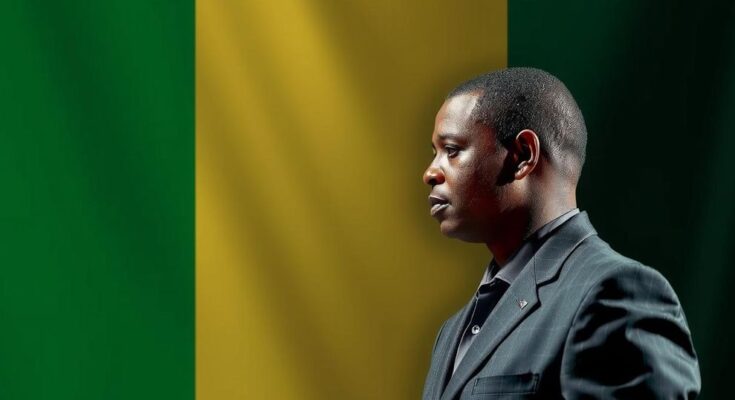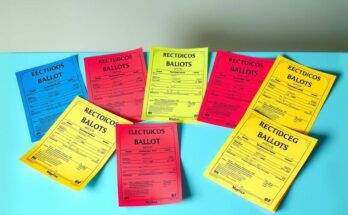Ghana’s upcoming election focuses heavily on the economy, with over 18 million eligible voters choosing between Vice President Mahamadu Bawumia of the NPP and ex-President John Dramani Mahama of the NDC. Amidst concerns over electoral transparency and disillusionment with past leaders, the candidates vied on economic recovery methods as they pledged commitment to a peaceful electoral process.
As election day approaches in Ghana, more than 18 million citizens are poised to decide on their next president, with significant focus on the nation’s economic recovery amidst rising public dissatisfaction. The primary contenders are Vice President Mahamadu Bawumia of the New Patriotic Party (NPP) and former President John Dramani Mahama of the National Democratic Congress (NDC). This election marks Mahama’s third attempt for the presidency after previous losses to outgoing President Nana Akufo-Addo, who reached term limits. Ghana’s electoral commission, led by Jean Mensa, has faced scrutiny over transparency, yet assurances have been made for credible polls. In a climate of voter disappointment, highlighted by unfulfilled promises of infrastructure development, voter turnout is a concern, especially in communities lacking basic services like electricity. Both candidates have emphasized economic strategies, with Bawumia advocating for digital jobs and Mahama promoting a 24-hour economy to address unemployment and stimulate growth. Amidst their campaigns, they have also engaged in a peace pact, reiterating commitment to a peaceful electoral process. Analysts suggest that avoiding complacency with voters will be crucial for electoral success, as Ghana continues to navigate significant economic challenges, including a $30 billion debt crisis, exacerbated by the COVID-19 pandemic and prior borrowing strategies.
The upcoming elections in Ghana have garnered considerable attention due to economic struggles and the need for effective leadership. The country is facing considerable challenges, including high external debt and public dissatisfaction relating to unfulfilled promises by politicians. Electoral transparency remains a significant concern, as does ensuring a peaceful voting environment. Both major candidates—Bawumia and Mahama—propose different economic recovery strategies while addressing the electorate’s grievances about development projects and their execution. Engaging the voters earnestly in these issues is critical for both the candidates’ success and the health of Ghana’s democracy.
In summary, as Ghana heads into a pivotal election, economic recovery emerges as the foremost issue for voters, with the major candidates proposing different solutions. The electoral commission’s efforts for transparency and peaceful conduct are also under scrutiny. Voter discontent over unmet development expectations presents a significant challenge for both candidates. The outcome will largely depend on their ability to connect with voters and present credible strategies to tackle Ghana’s pressing economic challenges.
Original Source: www.dw.com




